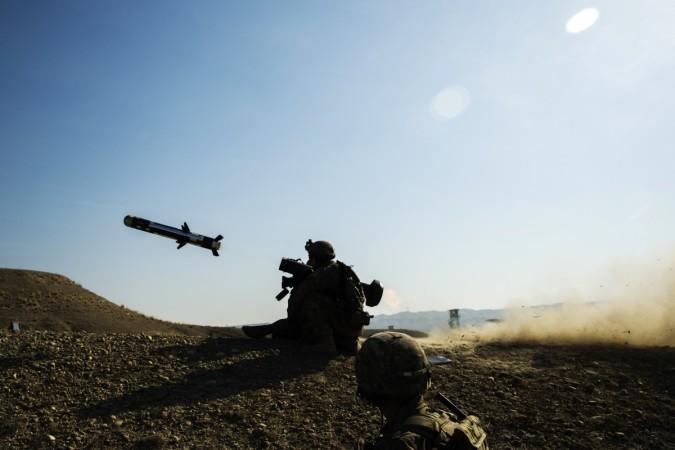
The Javelin anti-armour missile system is back in India -- this time with a concrete plan of being developed and produced, thanks to Tata Power signing the letter of intent (LOI) through its Strategic Engineering Division (SED) with U.S.-based Javelin Joint Venture, which is a partnership between Raytheon Company and Lockheed Martin.
The Jevelin is a shoulder-fired anti-armour system that can take on tanks and infantry fighting vehicles. It is a fire-and-forget missile (features automatic self-guidance) that lets the gunner take cover after he/she has fired the missile. The missile locks-on to the target before launching forward. Javelin has a maximum range of more than 2,500 meters and a minimum range of less than 100 meters.
The missile attacks tanks by hitting them from above. Javelin can be used in all environments and is currently used by the U.S. Army and U.S. Marine Corps. It has been approved for 15 foreign military sales customers, the ET reported.
"This agreement brings together three world leaders in aerospace and defence technology to extend Javelin to new customers, new applications and new platforms," said John Halvey, Javelin Joint Venture president at Raytheon Missile Systems, in a statement.
"With this deal, we are also reinforcing our continued support of the 'Make in India' initiative," he added.
The statement noted that apart from co-developing and producing the missile system, the LOI also offers integration of the missile system with platform mounts that include ground combat vehicle, dismounted infantry and rotorcraft applications. The document also creates a framework from future technological cooperation between Javelin Joint Venture and Tata Power SED.
"Now, our partnership with the JJV will bring the world's best technology to our soldiers enabling battlefield supremacy. Indian industry will benefit immensely from the depth and range of this planned technology transfer and co-development," said Rahul Chaudhry, CEO of Tata Power SED.
The Indian Army was planning to buy Javelin missiles but instead opted for Israeli Spike missile systems owing to the U.S. reluctance to provide full military know-how -- licensed transfer of technology (ToT).
The U.S. had also discussed the co-development of the next version of Javelin under the Defence Trade and Technology Initiative (DTTI) in 2013, but it was not included in the list of initiatives.









